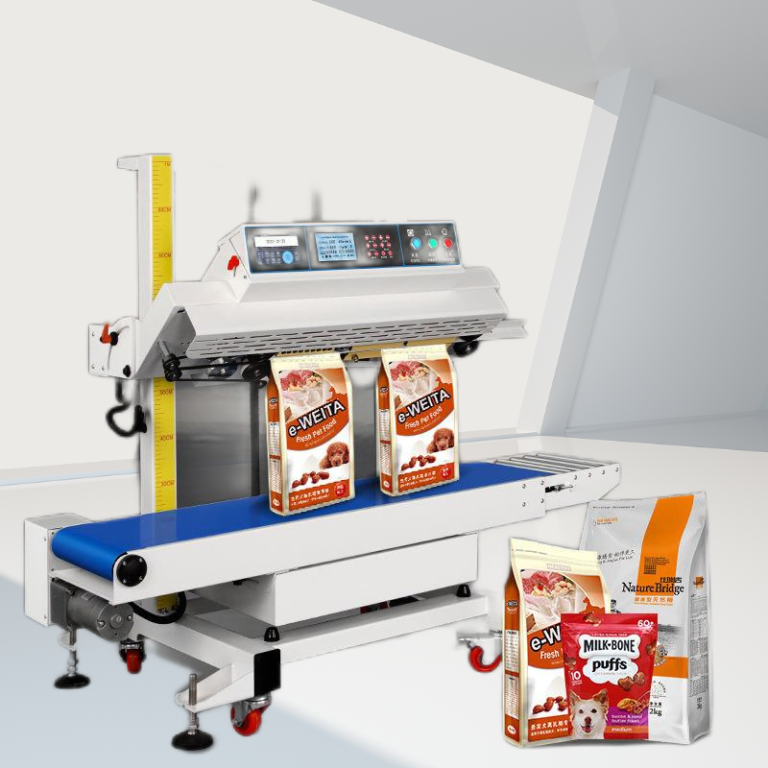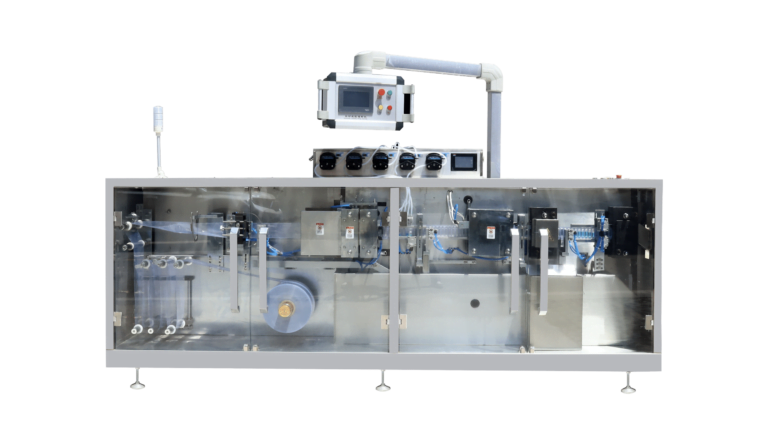Which cookie brand do you like best? Oreos or Nutter Butters?
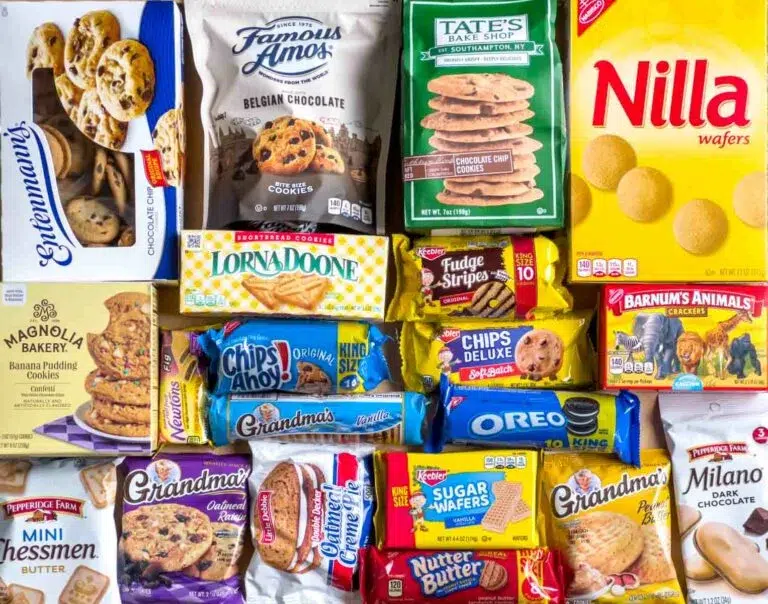
Cookie Business is a common business all over the world. A cookie is a food that is often smaller than a meal and is typically consumed between meals. Cookies can be created at home from fresh ingredients, or they can be packaged and processed. People such as children like to eat cookies when they go to the cinema or picnic. Especially at hike and trave, cookie and beverage are the things that energy people body.
Cookie Market Analysis
The Cookies Market size is estimated at USD 12.14 billion in 2024, and is expected to reach USD 18.77 billion by 2029, growing at a CAGR of 9.10% during the forecast period (2024-2029).
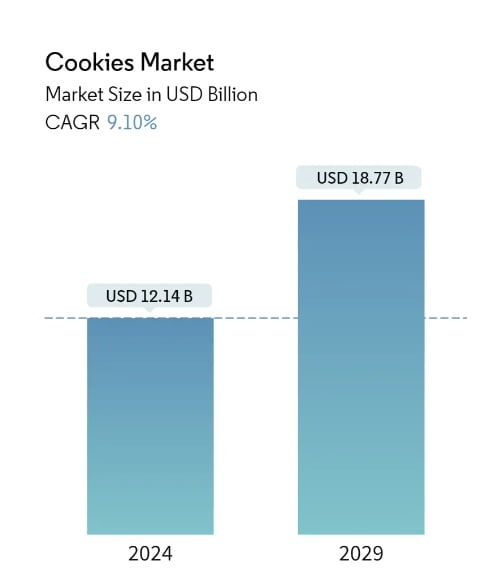
Customers across the world are increasingly becoming health conscious and are shifting towards gluten-free cookies owing to the rise in the number of chronic diseases. The key players are also focusing on launching healthier oatmeal raisin cookies and snickerdoodles with natural flavors, which is one of the major factors driving the growth of the cookies market.
For instance, in February 2022, The No Nasties Project, based in Melbourne, launched a biscuit range rated 3.5 health stars, Better Cookies. There are three flavors in this range: Hazelnut Flavoured Choc Chip Minis, Choc Chip Minis, and Caramel Flavoured Minis. Aside from their natural flavors and colors, they are free from artificial ingredients.
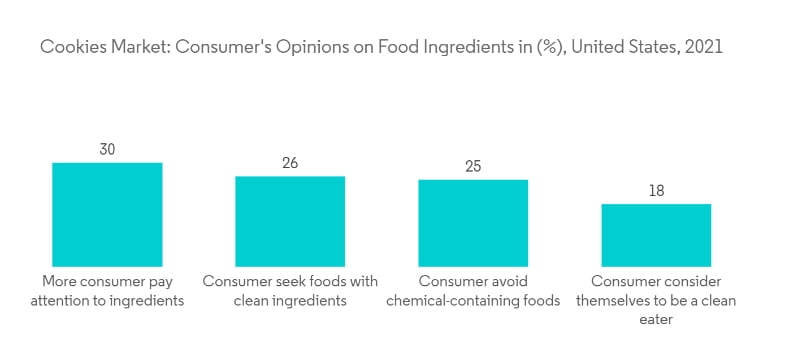
Additionally, oatmeal cookies are a healthier alternative to chocolate cookies and chocolate chip cookies. This is especially relevant for health-conscious consumers who attach a high level of importance to products that suit their active lifestyle.
Type of Cookie for sale
Plain and Butter-based Cookies
Soft, chewy, and infused with the delightful sweetness of brown sugar, butter cookies expertly blend the delicious tastes of butter, nutty pecans, and vanilla. While toasting the pecans before embedding them into the cookie dough isn’t obligatory, numerous bakers assert that it amplifies their flavor. Additionally, these culinary experts suggest pairing these delectable cookies with a generous scoop of ice cream, and why would anyone refuse such a tempting offer?
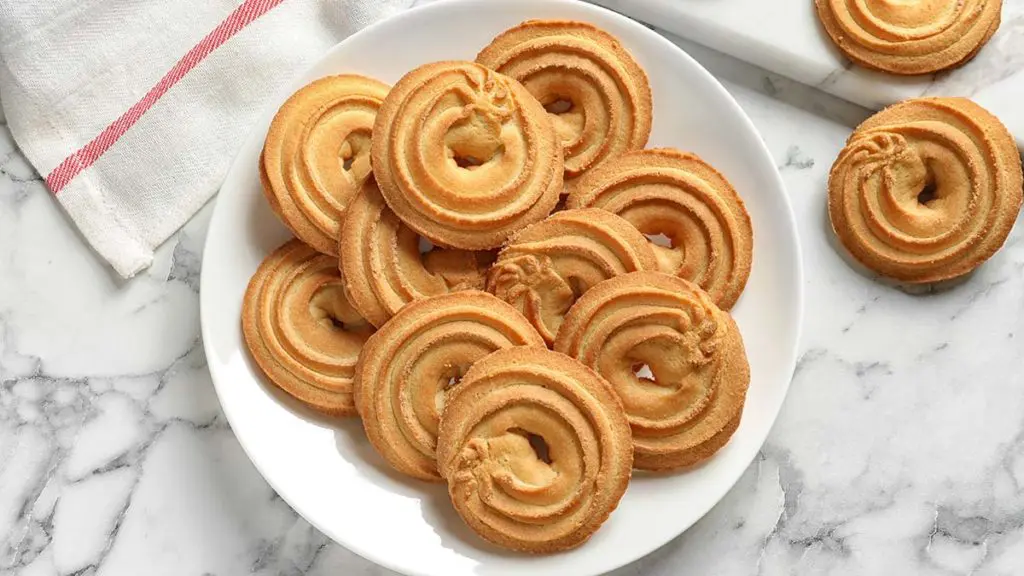
Chocolate-based Cookies
What is perhaps the most beloved variety of cookie? Look no further than the chocolate chip cookie. Praised for its perfect blend of decadence and sweetness, this classic treat has won the hearts of many. Typically made with ingredients like butter, eggs, chocolate chips, and brown sugar, the traditional recipe can be adapted to suit various tastes and occasions.

Legend has it that the chocolate chip cookie came into existence quite by accident in 1938. Ruth Wakefield, proprietor of the Toll House Inn in Massachusetts, decided to add broken pieces of chocolate bar to a batch of cookies, hoping they would melt and spread throughout. Much to her surprise, the chocolate bits retained their shape, giving birth to the now-iconic cookie we all know and love.
Other Cookies
There are more than 60 popular cookie for sale. Some of them will show here.
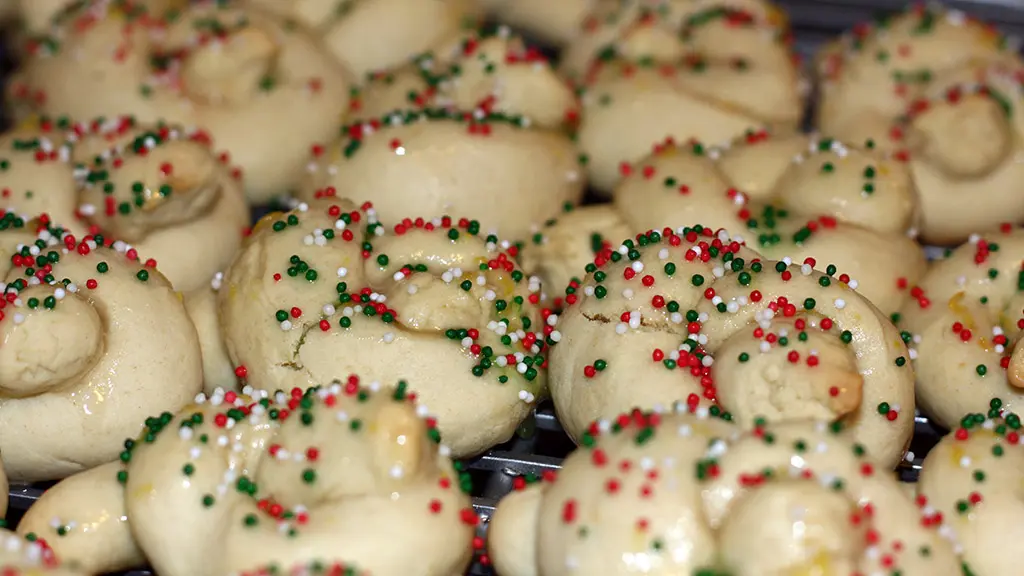
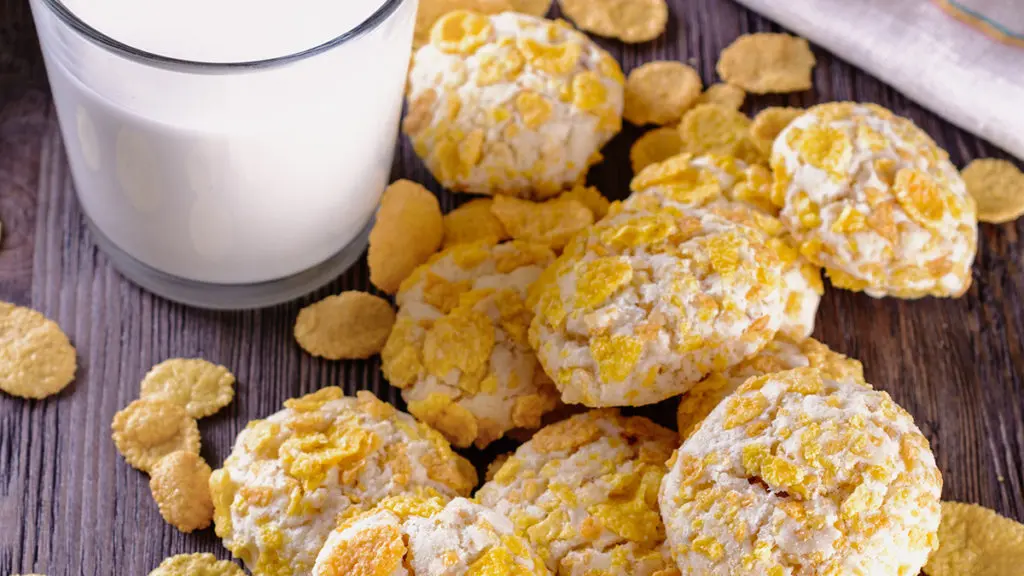
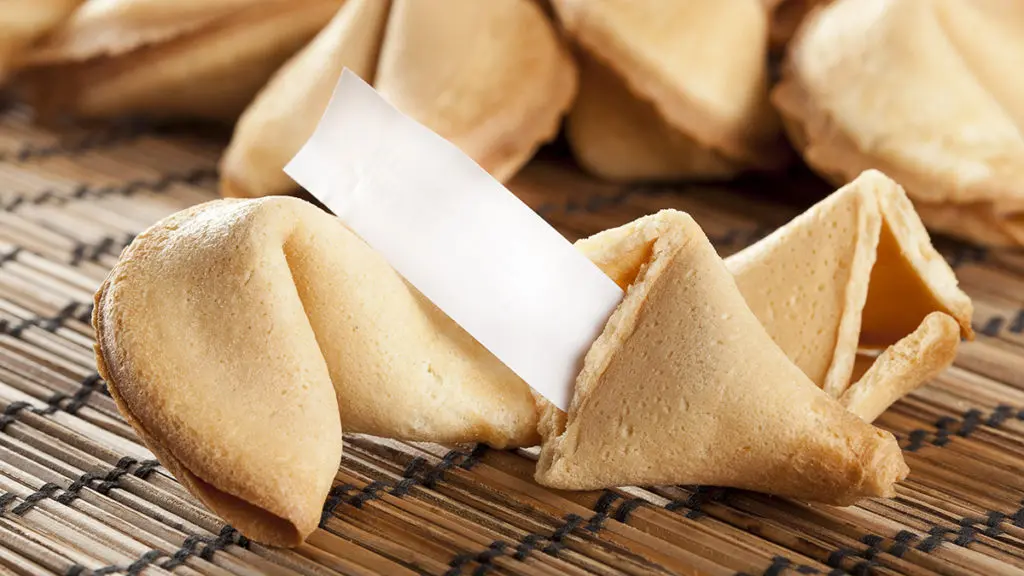

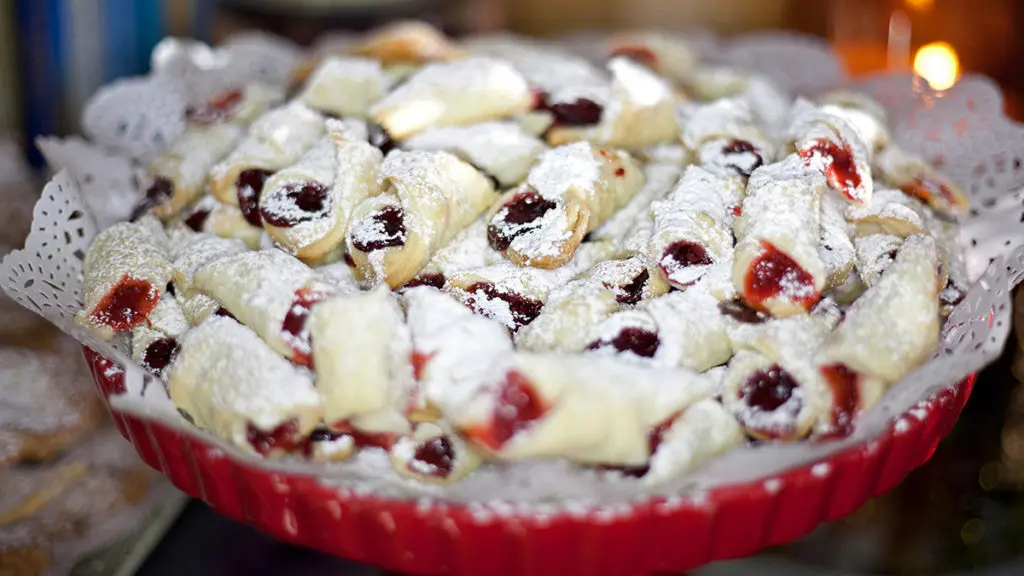
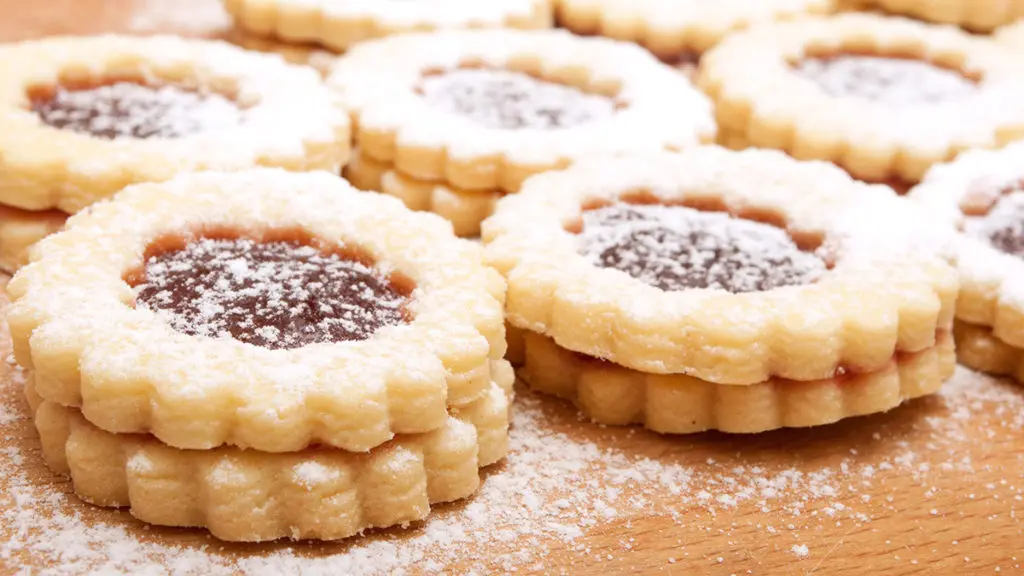
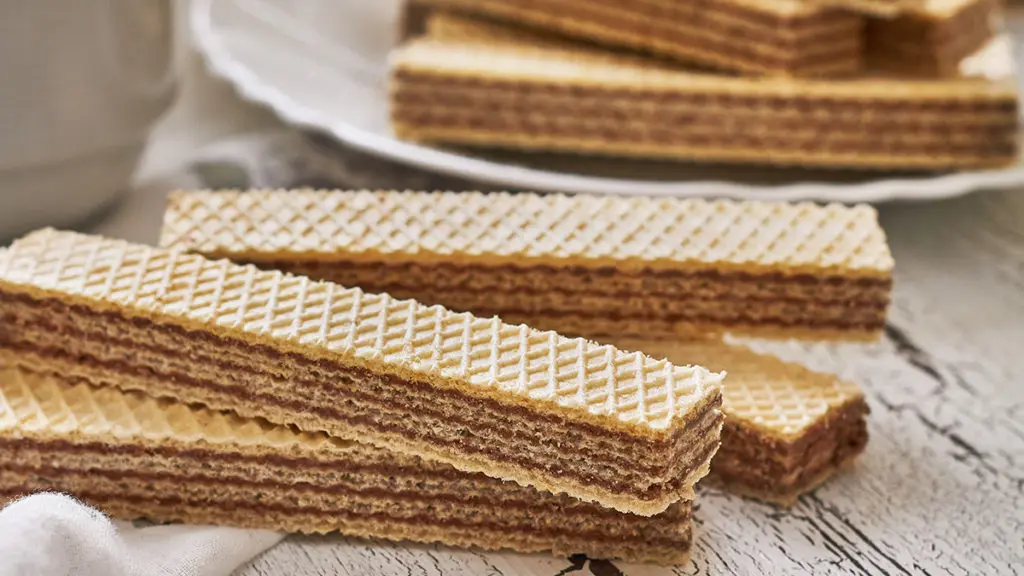

Equipment for Cookie Manufacture and Individual
A List of Equipment You May Need for a Homemade Cookie Business
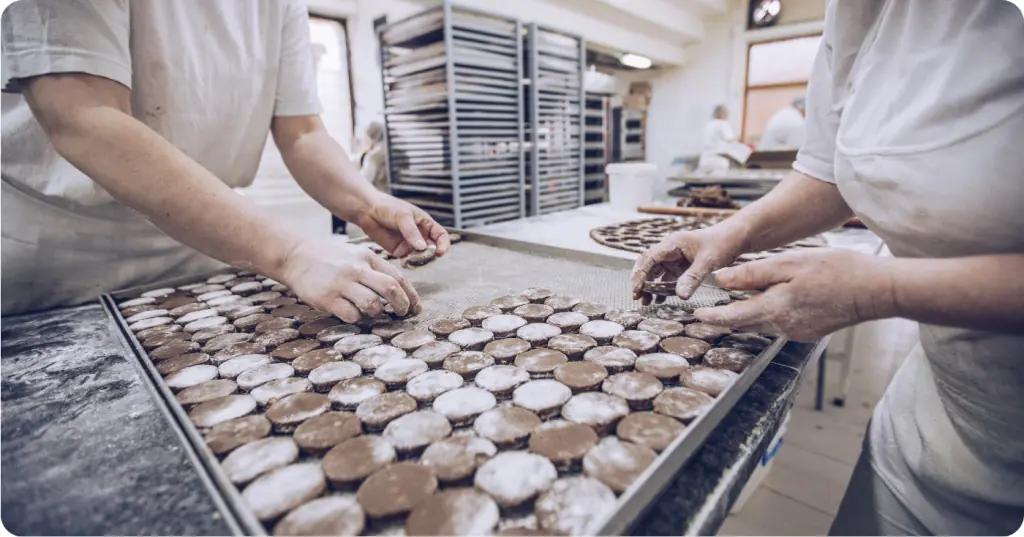
- Oven: A reliable oven for baking your cookies to perfection.
- Mixer: A stand mixer or handheld mixer for efficiently mixing dough and ingredients.
- Baking Sheets: Sheet pans or baking sheets for placing the cookie dough in the oven.
- Cooling Racks: Racks for cooling freshly baked cookies and allowing air circulation.
- Rolling Pin: A rolling pin for flattening dough and creating uniform thickness.
- Cookie Cutters: Various shapes and sizes of cookie cutters to create different cookie designs.
- Mixing Bowls: Assorted mixing bowls for preparing dough, combining ingredients, and mixing batters.
- Measuring Tools: Measuring cups and spoons for precise ingredient measurements.
- Spatulas: Rubber spatulas for scraping dough from bowls and transferring cookies.
- Baking Utensils: Whisks, pastry brushes, and pastry scrapers for specific baking tasks.
- Piping Bags and Tips: Piping bags and tips for decorative icing and creating intricate designs.
- Storage Containers: Airtight containers for storing baked cookies to maintain freshness.
- Weighing Scale: A kitchen scale for accurate weighing of ingredients.
- Wire Whisks: Whisks for incorporating air into mixtures and achieving smooth batters.
- Cookie Scoops: Scoops or portioning tools for consistent cookie sizes.
- Dough Scraper: A tool for easily lifting and dividing dough.
- Pastry Brushes: Brushes for applying glazes, egg washes, or melted butter on cookies.
- Wire Cooling Rack: Additional cooling racks for larger baking batches.
- Baking Pans: Various types and sizes of baking pans for different cookie variations.
- Decorating Tools: Brushes, stencils, edible decorations, and icing tools for creative cookie decorating.
A List of Equipment You May Need for Cookie Manufacturer
As a manufacturer of cookies, you’ll need a variety of equipment to efficiently produce your products at scale. Here’s a list of essential equipment for a cookie manufacturing operation:
Mixing Equipment:
Commercial mixers: Stand mixers or planetary mixers capable of handling large batches of dough.
Dough sheeter: Machine for rolling out cookie dough to a consistent thickness.
Oven:
Commercial convection oven: Ideally with multiple racks to bake multiple trays of cookies simultaneously.
Conveyor oven: For continuous baking of large quantities of cookies.
Cooling Racks:
Stainless steel cooling racks: To cool baked cookies evenly and efficiently.
Packaging Equipment:
Automated packaging machines: For sealing, labeling, and packaging cookies into bags, boxes, or containers.
Weighing scales: To ensure accurate portioning of cookies for packaging.
Storage and Shelving:
Stainless steel tables and shelving units: For workspace and storage of ingredients, equipment, and finished products.
Ingredient bins: Airtight containers for storing flour, sugar, chocolate chips, etc.
Dough Depositors and Cookie Cutters:
Dough depositors: Machines for depositing uniform portions of cookie dough onto baking trays.
Cookie cutters or molds: For shaping cookies into desired shapes and sizes.
Quality Control Equipment:
Metal detectors: To ensure there are no metal contaminants in the finished cookies.
Temperature probes: For monitoring oven temperatures to ensure consistent baking.
Cleaning Equipment:
Industrial dishwasher: For cleaning baking trays, mixing bowls, and other equipment.
Sanitizing equipment: To maintain cleanliness and hygiene in the production area.
Utility Equipment:
Dough scrapers and spatulas: For handling and shaping dough.
Baking trays and sheets: To hold cookie dough during baking.
Wire racks: For cooling baked cookies.
Safety Equipment:
Fire extinguishers: To address any potential fire hazards.
First aid kit: For treating minor injuries.
Remember, the specific equipment you need may vary depending on your cookie recipes, production volume, and baking techniques. Consider your business needs and budget when selecting equipment for your cookie business.

How to Start a Cookie Business
Starting a cookie business can be an exciting and rewarding venture.Whether you’re just starting or already up and running, we have valuable resources and information to assist you during the startup phase and beyond.
There’s a lot to cover, so feel free to bookmark this page for future reference. If you find this post helpful, please share it!
Step 1:Market Research and Business Plan
Conduct thorough market research to understand your target audience, competition, and industry trends. Use this information to create a detailed business plan outlining your goals, target market, products, pricing strategy, and marketing approach.
Step 2 :Legal Requirements and Permits
Ensure compliance with local regulations and obtain any necessary permits or licenses for operating a food business. This may include health department permits, food handler certifications, and business licenses.
Step 3:Develop Unique Recipes
Experiment with different cookie recipes to create a signature line of products that sets your business apart. Consider offering a variety of flavors to cater to diverse tastes and preferences.
Step 4:Source Quality Ingredients
Invest in high-quality ingredients to ensure the taste and freshness of your cookies. Establish relationships with reliable suppliers to maintain consistency in your product offerings.
Step 6 :Kitchen Setup and Equipment
Set up a commercial kitchen space equipped with the necessary baking equipment and utensils. Ensure that your kitchen meets all health and safety standards required for food preparation.
Step 7:Packaging and Branding
Design attractive packaging and cookie business logo that reflects the quality and uniqueness of your cookies. Invest in branding efforts to create a memorable and recognizable identity for your business.
Step 8:Test and Refine Recipes
Conduct taste tests with friends, family, and potential customers to gather feedback on your cookies. Use this feedback to refine your recipes and improve the overall quality of your products.
Step 9:Create a Sales Channel
Explore different sales channels, such as online platforms, farmers’ markets, pop-up shops, and wholesale partnerships. Develop a strategy to reach your target customers and drive sales effectively.
Step 10:Build an Online Presence
Establish a professional website , sell cookies on etsy and utilize social media platforms to showcase your products, engage with customers, and promote your brand. Invest in photography to create visually appealing content that highlights your cookies.
Step 11:Customer Service and Feedback
Prioritize excellent customer service to build loyalty and foster repeat business. Encourage customers to provide feedback and reviews, and use this information to continuously improve your products and services.
Step 12:Monitor Finances and Operations
Keep track of your expenses, sales, and inventory to maintain financial stability and operational efficiency. Consider using accounting software to streamline your bookkeeping processes.
Step 13:Scale and grow cookie business idea
Once your business is established, explore opportunities for growth and expansion. This could involve introducing new product lines, expanding your distribution network, or opening additional locations.
Common Questions When Starting A Cookie Business
1.What is Essential Skills for a Cookie Business Owner
Mastery of Baking Techniques Adeptness in various baking methods, including recipe development, and the creation of both delicious and visually enticing cookies.
Innovative Thinking The capability to think creatively, introducing novel flavors, designs, and packaging concepts to distinguish oneself in the market.
Effective Time Management Proficiently organizing time to adhere to production schedules, fulfill orders promptly, and manage administrative duties efficiently.
Exemplary Customer Relations Offering outstanding customer service by promptly addressing inquiries and concerns, fostering positive relationships with clientele.
Financial Acumen A fundamental grasp of financial principles, encompassing budgeting and meticulous tracking of expenses, profits, and cash flow.
Marketing Prowess Understanding marketing strategies, branding techniques, and effective sales methods to both attract and retain customers.
Flexibility and Adaptability Being responsive to shifts in market trends, altering strategies according to customer preferences and adapting to varying business requirements.
Keen Attention to Detail Exhibiting a sharp eye for detail in cookie decoration, ensuring consistent quality and upholding high standards.
Resourceful Problem-Solving Demonstrating the ability to identify and resolve issues that may arise during production, operations, or interactions with customers.
Clear and Concise Communication Possessing strong communication skills to convey information effectively, negotiate with suppliers, and collaborate seamlessly with team members.
Supplier Relations Establishing and maintaining good relationships with suppliers to ensure a steady and reliable source of quality ingredients and materials for cookie production.
Health and Safety Compliance Understanding and implementing health and safety regulations and standards in the kitchen to ensure the well-being of employees and the quality of the products.
Networking Building a network of contacts within the industry, such as other bakers, food bloggers, and potential collaborators, to gain insights, support, and opportunities for growth in the cookie business.
As a cookie business owner, these essential skills will help you navigate challenges, deliver high-quality products, and provide a positive customer experience.
2.How much does it cost to start a cookie business?
Starting a cookie business can involve various costs, which can vary depending on your chosen business model and the equipment you already have available. To provide an example, let’s look at starting as a home-based cookie business. In this model, a rough estimate to get started could range from $2,000 to $10,000.
Kitchen modifications: One of the most significant expenses when starting a home-based cookie business could be modifying your kitchen to meet local health and safety regulations. This can include costs for renovations or equipment upgrades, and you can expect to spend between $500 and $2,000 on these modifications.
Equipment and supplies: Depending on what you already have on hand, equipment for baking and packaging cookies, such as mixers, baking sheets, cooling racks, and packaging materials, need to be purchased and can cost approximately $500 to $2,000. Additionally, consider expenses for utensils, measuring tools, storage, and any specialized equipment you may need.
Business registration: Depending on your location, the legal structure of your business, and local licensing, the cost of business registration can vary. On average, you could expect to pay around $100 to $1,000 to register your business.
Insurance: Liability coverage for a home-based baker may run $400 to $600 annually.
Marketing: Initial marketing efforts for your cookie business might include creating a website, designing a logo, and advertising. The cost for these initial marketing efforts can range from $500 to $1,000.
3.How profitable is a cookie business?
While it is challenging to provide a precise estimate of the profitability of a cookie business, let’s look at some industry statistics and assumptions of a small home-based cookie business that sells at farmer’s markets and local events.
Revenue: Let’s assume you sell your cookies at $2 each and attend two farmers’ markets or local events per week. If you sell 200 cookies per event, your weekly revenue would be 2 * 200 * 2 = $800. Over a month, this amounts to approximately $3,200.
Expenses: The cost of ingredients for a batch of cookies can vary widely depending on the recipe, but let’s assume it costs $5 to make a dozen cookies, or about $0.42 per cookie. If you’re making 400 cookies per week, your weekly cost for ingredients would be 400 * $0.42 = $168, or approximately $672 per month.
Other recurring expenses include market stall fees, which can range from $25 to $100 per event, so let’s use a middle-ground estimate of $62.50 per event. This would amount to $500 per month if you’re attending eight events. In addition, you would have credit card processing fees, vehicle expenses, marketing, and office supplies that add an extra $200 per month.
This brings your total monthly expenses to $672 (ingredients) + $500 (stall fees) – $200 (other expenses) = $1,372.
Profit: Subtracting your expenses from your revenue gives you a monthly profit of $3,200 (revenue) – $1,372 (expenses) = $1,828.


